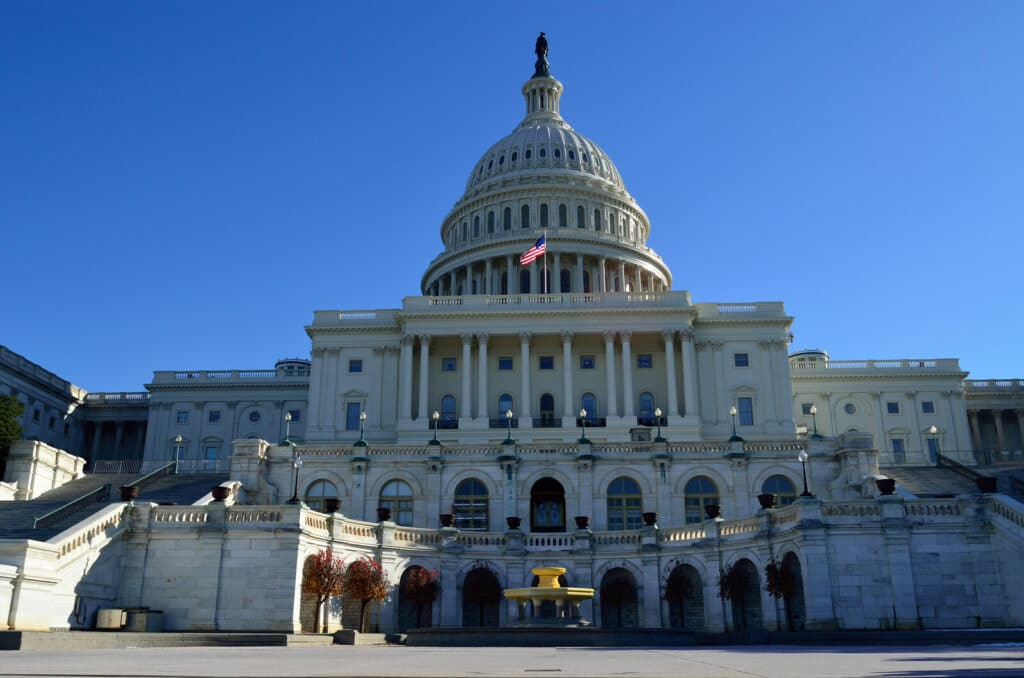The North American Equipment Dealers Association and the Equipment Leasing and Finance Association are seeking changes as the fall legislative session approaches to better protect vendors and lenders.
The North American Equipment Dealers Association (NAEDA) plans to push for passage of the farm bill and the Community College Agriculture Advancement Act when Congress reconvenes on Sept. 5.
“The farm bill doesn’t necessarily directly impact us, but we have a lot of upstream and downstream benefits from it,” Kipp McGuire, director of government affairs for NAEDA, said during the group’s legislative update webinar on Thursday.
The farm bill covers everything from farm programs, conservation, rural development, forestry, trade promotion, nutrition, and ag research and education, according to the University of Kentucky’s Department of Agricultural Economics website. Every five years, Congress votes on a new farm bill, which directs United States spending for agricultural-related activities. The current bill expires on Sept. 30.
The House and Senate agriculture committees are preparing to take the next steps on the farm bill this month, McGuire said.
“The House and Senate ag committees have been … going around the country doing informational listening sessions as well as sessions at the Capitol,” he said. “They’re marking up the bill to begin after the August recess.”
Still, the last farm bill was passed in 2018, so members who have joined Congress since then will need to be educated on the bill’s importance, Eric Wareham, senior vice president of government affairs for NAEDA, said during the webinar.
“I would be willing to wager that all of those new members are probably from more urban backgrounds, more urban districts that are less rural, so [they need] a lot of education,” he said.

Community College Agriculture Advancement Act
Another bill set to work its way through Congress this session that will affect equipment dealers and vendors is the Community College Agriculture Advancement Act of 2023, introduced by Rep. Trent Kelly, R-Miss.
The bill has 19 bipartisan co-sponsors and focuses on expanding federal grants for ag-related studies to include two-year and community colleges, NAEDA’s McGuire said. If approved, programs like technician training would meet the capacity building grants requirements set by the National Institute of Food and Agriculture and the Department of Agriculture.
“Capacity building grants allow [colleges] to build their programs to help agricultural and natural resources departments,” McGuire said. “The bill extends that program to allow the Department of Agriculture to grant those capacity building grants to two-year institutions, instead of just four-year institutions.
“We see this as a win for the industry, especially given the workforce development shortfalls that dealerships have been experiencing,” McGuire said.
ELFA files Section 1071 injunction
Meanwhile, the Equipment Leasing and Finance Association (ELFA) filed to join an injunction to stop implementation of the Consumer Financial Protection Bureau’s (CFPB) Section 1071, according to an Aug. 29 ELFA release.
Section 1071 requires financial institutions to collect information about credit applicants and report it to the CFPB annually, according to the bureau’s website. While it does not directly impact vendors, Section 1071’s requirements mean that lenders would need vendor help to collect the required information.
ELFA wants the U.S. District Court for the Southern District of Texas to expand its injunction delaying Section 1071’s effective date to include ELFA members. The delay currently applies to the American Bankers Association, Texas Bankers Association and ELFA member Rio Bank, which are all located in McAllen, Texas.
“ELFA has been working to make sure Section 1071 doesn’t make it more burdensome for our members and their customers in the $1 trillion equipment finance industry to do business together,” ELFA President and Chief Executive Ralph Petta said. “The association is taking this legal action to ensure that all ELFA members are subject to the same compliance timeframe and to ensure that transactions are treated the same, regardless of the type of company that makes the loan.”










